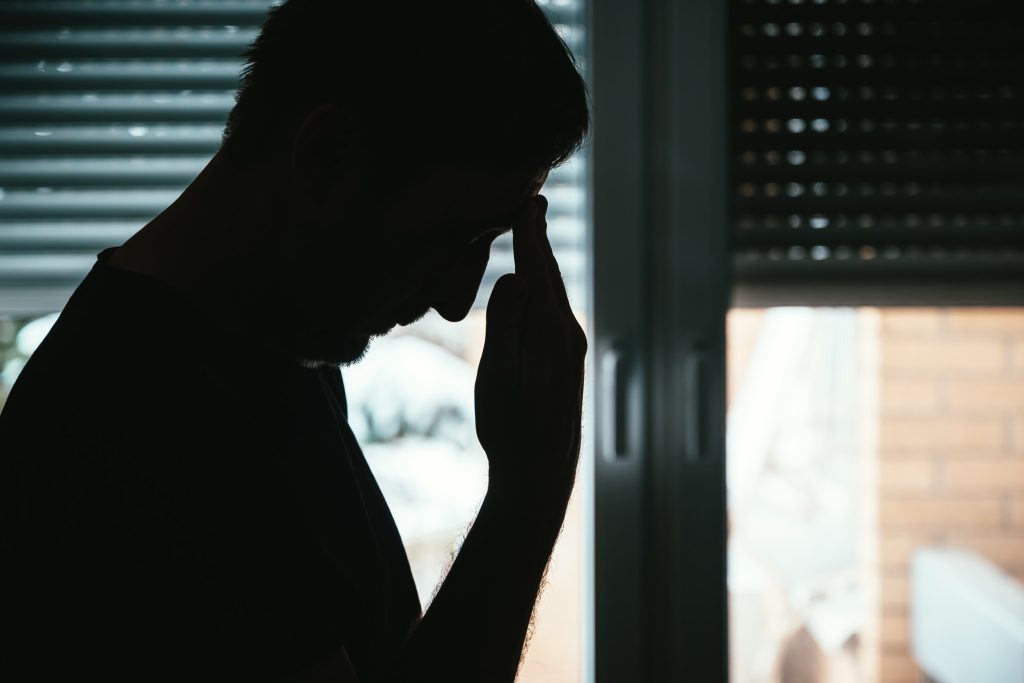
Depression is a sneaky adversary, often lurking beneath a veneer of normalcy. Many individuals, particularly those adept at masking their emotions, suffer in silence. Recognizing the subtle cues of hidden depression is crucial for offering timely support. These seven often-overlooked indicators that someone you know might be struggling, even if they appear fine on the surface. Understanding these signs can empower you to reach out and make a real difference in their lives.
1. Subtle Shifts in Communication
Changes in how someone communicates can be a key sign of hidden depression. They might become unusually quiet or, conversely, overly talkative to fill silences and avoid deeper topics. You may notice their vocabulary shifts, perhaps using more negative language or expressing a bleak outlook more frequently. Their responses to questions could become vague or dismissive, especially when discussing their feelings or personal life. Pay attention to these nuances, as they can indicate an internal struggle with hidden depression they are not openly sharing.
2. Altered Sleep Patterns
Sleep disturbances are a common symptom, even with hidden depression. This could manifest as insomnia, where they struggle to fall asleep or stay asleep despite being tired. Conversely, they might start sleeping excessively, using sleep as an escape from their overwhelming feelings. You might hear them mention being constantly fatigued, even after a full night’s rest, or they may change their sleep schedule drastically. These shifts in sleep can significantly impact their daily functioning and are a red flag for underlying hidden depression.
3. Changes in Appetite or Weight
Significant, unexplained changes in eating habits often accompany hidden depression. Some individuals may lose their appetite and show little interest in food, leading to noticeable weight loss. Others might turn to food for comfort, resulting in overeating and subsequent weight gain. Be mindful if someone suddenly develops a fixation on specific foods or completely avoids meals they once enjoyed. These fluctuations can be physical manifestations of the emotional turmoil associated with hidden depression.
4. Loss of Interest (Anhedonia)
A tell-tale sign of hidden depression is anhedonia, the inability to derive pleasure from previously enjoyed activities. They might withdraw from hobbies, social gatherings, or passions that once brought them joy. You may observe them going through the motions without genuine enthusiasm or frequently making excuses to avoid engaging. This isn’t about a fleeting bad mood; it’s a persistent lack of interest that signals something deeper. Recognizing this disengagement is vital in identifying hidden depression.
5. Increased Irritability or Sensitivity
While sadness is often associated with depression, increased irritability can also be a prominent symptom of hidden depression. They might have a shorter fuse, becoming easily agitated by minor inconveniences or critiques. You could notice them being more sensitive to perceived slights or reacting disproportionately to everyday stressors. This heightened emotional reactivity can be a defense mechanism or a sign of their struggle to manage overwhelming negative feelings. Such uncharacteristic irritability warrants concern for potential hidden depression.
6. Forced Happiness or Overcompensation
Individuals hiding depression may go to great lengths to appear happy and well-adjusted. This can involve forcing smiles, laughing too readily at unfunny things, or maintaining an overly optimistic facade. They might become the “life of the party” or excessively helpful to mask their inner pain. This overcompensation is a way to deflect attention from their true feelings and maintain an illusion of control. If someone’s cheerfulness feels consistently forced or out of sync with their circumstances, it could be a sign of hidden depression.
7. Vague Physical Complaints
Often, hidden depression manifests physically through persistent, vague ailments. They might frequently complain of headaches, stomach issues, or unexplained aches and pains that have no clear medical cause. These physical symptoms can be the body’s way of expressing emotional distress when words fail. If someone you know repeatedly mentions feeling unwell without a specific diagnosis, it could be linked to their mental state. Consider whether these complaints might be connected to underlying hidden depression.
Beyond the Brave Face
Recognizing hidden depression requires looking beyond the surface and paying attention to subtle, persistent changes in behavior and mood. People skilled at concealing their struggles often do so out of fear, shame, or a desire not to burden others. Your gentle awareness and willingness to see past the facade can be the first step toward their seeking help. Remember that your non-judgmental support can be incredibly powerful for someone fighting a silent battle with hidden depression. It’s about being present and showing you care.
Have you ever noticed these subtle signs in someone, or experienced them yourself? Share your insights or experiences in the comments below.
Read More:
7 Medical Tests You Didn’t Know You Could Request for Free
10 Things People with Severe Anxiety Wish You Knew
The post 7 Ways to Spot Depression in Someone Who Is Good at Hiding It appeared first on Budget and the Bees.







